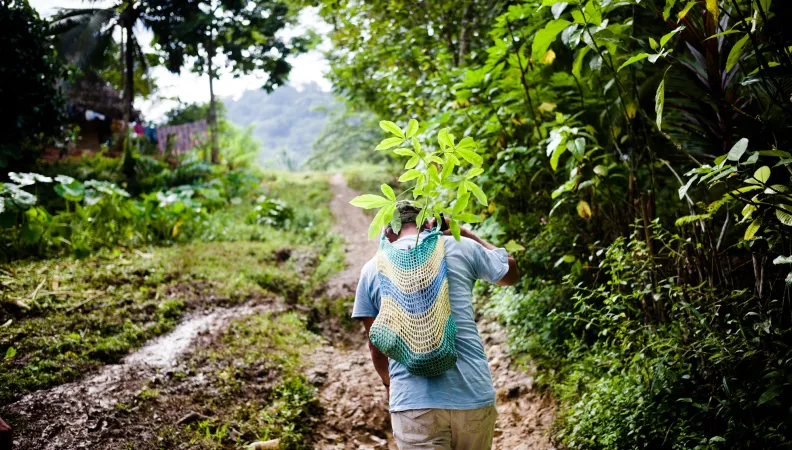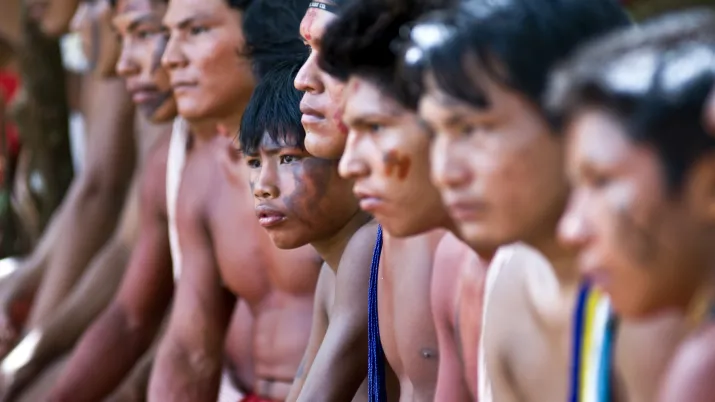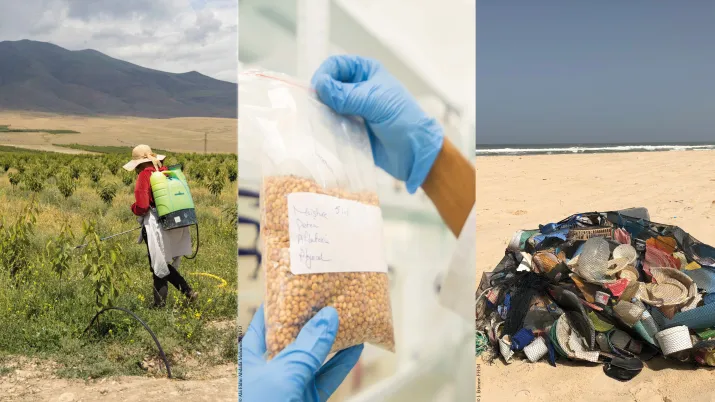Share the page
Innovation at the heart of solutions to reconcile forest and humanity
Published on

First reservoir of terrestrial biodiversity, forests are, along with land, a formidable lever for climate regulation. Deforestation from agriculture causes nearly a quarter of anthropogenic greenhouse gas emissions and an accelerated loss of biodiversity. The FFEM addresses together the forest and agricultural territories, intimately linked. For 30 years, the FFEM has supported innovative solutions with 105 projects financed on forests and agricultural land and an amount of €144 million committed.
On this International Day of Forests, the theme is “Forests and innovation: new solutions for a better world.” Let’s take a look at the innovative projects supported around the world and our capitalization on sustainable forest management in Central Africa.

FIGHT AGAINST DEFORESTATION
To combat deforestation, forest degradation and land-use change, the FFEM supports producers in the implementation of viable «zero deforestation» practices, whether for export or food sectors. It encourages effective and transparent monitoring and control. It also pays particular attention to slash and burn practices and the production of wood energy. It thus supports initiatives that contribute to European regulations to combat imported deforestation.
The project "PRM2" supervised by the association NITIDAE and supported by the FFEM and its partners (EU, AFD, Ministry of Ecological Transition and Territorial Transition) aims to consolidate the «landscape» approach already implemented in these three protected areas and their peripheral area. This is to formalize the tools necessary for the emergence of zero deforestation, reconciling sustainable development and preservation of natural resources.Since 2021, in Colombia, Ecuador and Peru, the FFEM alongside its partners Alliance Bioversity-CIAT, Kaoka and Conservation International contribute to the establishment of bioequitable cocoa sectors «zero deforestation» sustainable and remunerative for producers thanks to the project « EXCELLENT COCOA».
Its ambition: to obtain an organic or fair trade certification of 445 hectares and 460 hectares of new plantations in agroforestry.
Emmanuelle Poirier-Magona, Head of Agro-ecology, zero deforestation, pastoralism and urban agriculture projects at the FFEM specifies :
In the Amazon region, the «TERRINDIGENA» project in partnership with the French Development Agency (AFD) aims to strengthen the protection of more than 17 million hectares of territories in Brazil, Colombia and Ecuador, in collaboration with 18 indigenous organizations.
This is also the challenge of the project "VITAL RESERVES" in partnership with the Ministry of Economy, Finance and Industrial and Digital Sovereignty and International Conservation, launched during COP 28, aims to contribute to the preservation of the Amazon rainforest while ensuring better human well-being through the creation, protection, management and sustainable financing of a new generation of protected areas, as vital reserves, carbon-rich areas “irrecoverable” and biodiversity.
According to FAO, the rate of deforestation has slowed in recent years from 16 million hectares per year in 1990 to 10 million per year over the period 2015-2020, forest conservation initiatives are multiplying and the number of protected areas is increasing.
MANAGING FORESTS IN A SUSTAINABLE AND CONCERTED MANNER & COMBATING DESERTIFICATION
The FFEM also encourages projects aimed at the preservation and restoration of forest landscapes, which balance different uses taking into account the conservation of forests, their social value and economic interests. It pays particular attention to the recognition of the rights of local populations. The FFEM supports integrated and concerted approaches to sustainable forest management and the development of sustainable models for forest management. In dry areas, the FFEM promotes sustainable agro-sylvopastoral systems through systems that contribute to the sustainable management of land and natural resources and economic development of territories.
In Senegal, for example, livestock contributes 4% to the gross domestic product and 30% of the population lives from livestock products. The sector is essential for the country’s food security. The main breeding area is Ferlo, a semi-arid territory that covers 40% of the country and accounts for 2/3 of the national livestock. The project «DUNDI FERLO» in partnership with AFD and AVSF aims to improve the management of local pastoral resources characterized by shared access to space and natural resources: pastures, water and wood. in the Ferlo region and in the Senegal River Valley, and fight against desertification in this Region particularly vulnerable to climate change.
The FFEM promotes forest management plans as a valuable tool to ensure sustainable forest management. This long-term agreement between private concessionaires or local communities and the States brings about sustainable resource development, which the FFEM helps to promote by supporting eco-certification. To preserve the biodiversity of these environments, the FFEM supports the creation and structuring of inclusive protected areas for local populations. It supports the valorization of forests to fight climate change through the REDD+ mechanism, based on payments for environmental services.
The valorization of zero deforestation and the sharing of more responsible forest practices through major capitalization work, are among the priority objectives of the FFEM. They aim to promote sustainable management of agricultural and forestry territories. This transversal approach relies on the support of local projects in close collaboration with local populations, specialists and private actors.
In terms of sustainable forest management, the FFEM has developed with its partners a capitalization book «In Focus : Towards more sustainable management of central african production forests» detailing 6 concrete recommendations for the forests of Central Africa. As Sébastien Treyer, Director General of IDDRI and Chairman of the Scientific and Technical Committee of FFEM states:
COMBATING CHEMICAL RISKS
Finally, as part of its integrated strategy, FFEM also promotes preventive approaches and remediation measures aimed at reducing exposure to chemicals from ecosystems, wildlife and populations in a One Health approach.
On the Guiana plateau, the FFEM and its partners are helping to reduce mercury contamination with a project to eliminate mercury in the gold sector, while curbing mining deforestation.
Refuge for biodiversity, carbon sink, source of economic and energy activity, The challenges related to the forest illustrate the importance of an integrated approach that is at the heart of the FFEM strategy.
The theme of innovation chosen for this International Day of Forests 2024 is at the heart of FFEM’s action to spread relevant and effective solutions with a transformational aim and thus succeed in the transition to more sustainable development models.
Further reading
The FFEM and its partners are committed to preserving indigenous territories in the Amazon region
Published on august 8 2023


